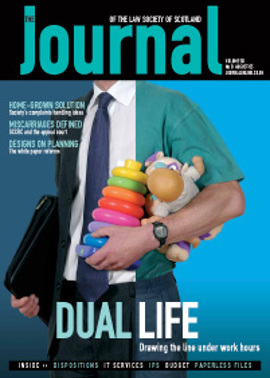Book debts: the final word?

The House of Lords handed down its judgment in the case of National Westminster Bank plc v Spectrum Plus Ltd and Others on 30 June. In this decision their Lordships have rejected in principle the validity of a Siebe Gorman type of fixed charge over a company’s present and future book debts, and also rejected the Bank’s submission that the ruling should not apply retrospectively.
Their Lordships have therefore brought to an end the uncertainty which has existed since the Privy Council’s decision in Agnew v Commissioners of Inland Revenue [2001] 2 AC 710 (known as the “Brumark” decision). However, an element of uncertainty now arises because of the rejection in principle of the Siebe Gorman case, which has been relied on for 25 years by banks and the business community generally (see Siebe Gorman & Co Ltd v Barclays Bank Ltd [1979] 2 Lloyd’s Rep 142). The House of Lords decision was unanimous, but will not make life any easier for financiers in England and Wales seeking to maximise the scope of their fixed security.
Matters of concern
The concerns which will arise from this decision may have been lessened by the abolition of Crown preference, as it was the ranking of preferential creditors behind the fixed charge security and ahead of floating charge security which was the driver for the categorisation of the charge on book debts being fixed rather than floating. However, since the same categorisation applies to administration expenses, which are difficult to quantify with any certainty, the problem does not go away. The decision of their Lordships that there was no reason to limit the effects of the judgment to future cases of course leaves insolvency practitioners to deal with the effects of the decision in relation to existing and indeed past cases.
Control in practice
The House of Lords has held in effect that for the bank to have the requisite degree of control on the proceeds of collection of book debts, not only must there be a provision in the charge for the payment of the proceeds into a separate account over which the bank retains a measure of control, but also that the operation of that account must, as a matter of practice, give the bank a measure of control on the proceeds of collection of the book debts.
Book debts are generally an easily and quickly realisable form of asset and in many cases represent a high proportion of a company’s total assets. A fixed charge over them was a valuable form of security in the hands of the bank and the virtual demise of a fixed charge could adversely affect the banks’ future lending policies. Time will tell whether general lending policies are affected, or whether banks seek to exert a greater degree of control on the proceeds of collection. Lord Hope of Craighead has however given clear pointers in his opinion where he stated (paragraphs 52, 58, 61): “But if this is to be effective as a fixed security everything depends on the way the security agreement ensures that the charge over the book debts is fixed. It is not easy to reconcile the company’s need to continue to collect and use these sums for its own business purposes with the lender’s wish to escape from the priority which section 175(2)(b) gives to preferential debts… by subjecting the uncollected book debts to a security which will operate as a fixed charge over them… But it seems to me that [the]… point that the bank could assert a lien over the proceeds overlooks the fact that the account into which the proceeds were to be paid was the company’s current account with the bank which the company was to continue to be free to operate for its own business purposes within the agreed limit of its overdraft… This was a current account into which the company paid money drawn from a variety of other sources as well as the proceeds of its book debts. In my opinion the company’s continuing contractual right to draw out sums equivalent to the amounts paid in is wholly destructive of the argument that there was a fixed charge over the uncollected proceeds because the account into which the proceeds were to be paid was blocked.”
Alistair Burrow, Tods Murray LLP
In this issue
- Prosecuting bigotry offences
- A hotter than average July
- Advice for all, but what about justice?
- Calling time
- The anti-avoidance drive
- The best option?
- Radical design
- Miscarriages of justice
- Information technology
- IPS... keeping a watchful eye
- When less means better
- Reality check - not Big Brother
- A clear duty
- Missing a generation
- Does age matter?
- Fair picture?
- Book debts: the final word?
- Website reviews
- Book reviews
- Challenging the sacred cows of conveyancing






